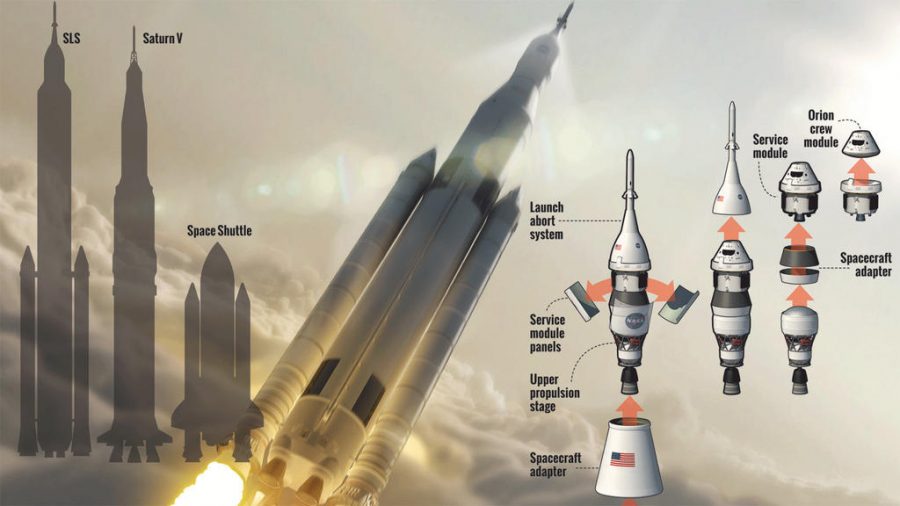NASA Under a Trump Administration
February 2, 2017
Washed up in the ardent issues of this presidential election is the future of NASA under the new administration. Issues concerning the space agency do not often make big headlines during presidential campaigns, but there have been hints that provide some insight into the route that the president and his appointed officials may take with NASA in the coming years.
Donald Trump will be involved in making decisions about our proposed journey to Mars, which is aimed to launch humans to Mars in the 2030s. Currently NASA is undergoing development of an extraordinarily powerful heavy-lift rocket called the Space Launch System (SLS) which, along with the Orion spacecraft, would allow humans to reach the Red Planet. These multibillion-dollar programs are still far from being ready to fly, which leaves them vulnerable to a new administration considering their cancellation. That doesn’t mean the Mars dream would effectively disappear along with it, however. The next administration could, in theory, cancel the SLS program in favor of private company SpaceX’s Falcon rocket that is also undergoing development for billions of dollars less and is proving more effective than the SLS. NASA had previously proposed cancelling SLS and in turn buying the heavy-lift rocket off of SpaceX or another from the United Launch Alliance (ULA) to Congress a few years ago, but they were turned down and contracted to continue with SLS. Luckily, there are benefits to having these two programs running simultaneously: safety. If one rocket fails, there will be a backup to take its place.
In general, it is likely we will see several of NASA’s former commitments move to private spaceflight companies such as missions to and from the International Space Station. It’s more cost-effective and creates a beneficial partnership that would speed up the agency’s goals and expand their resources.
Nothing is set in stone quite yet. Trump has not yet appointed the federal leaders who would be involved with making decisions regarding NASA (NASA administrator, NASA deputy administrator or head of the White House Office of Science and Technology). Nevertheless, some troubling ideas have been floating around Congress. Several conservatives, including Ted Cruz and Bob Walker, have expressed that they believe NASA should tone down its Earth science studies and transfer them to agencies they believe better to handle the task so that NASA can “focus primarily on deep-space activities.” The agency they are most likely citing is the National Oceanic and Atmospheric Administration (NOAA). Transferring projects there would require massive revamping of the relatively small NOAA, an administration that “has usually relied on NASA for support developing and operating missions, including those funded by NOAA itself.” This proposal likely has to do with the Congressmen’s stance on climate change. They have expressed concern for NASA losing hold of its “core mission.” What they don’t understand is that Earth science is an integral part of this core mission. As David Grinspoon, a researcher at the Planetary Sciences Institute puts it, “You cannot study other planets without referring to Earth and without applying the techniques and the insights of Earth science, and you cannot really do a good job understanding the Earth without the insights from planetary exploration.” This downsize seems unlikely at the moment, however. Michael Freilich, director of NASA’s earth science division, stated on January 10 that he did not predict any significant adjustments to the programs for the rest of 2017’s fiscal year and urged any wary scientists to remain calm.
In all, we cannot be certain of the direction NASA will be taking until further notice, but scientists will not give in to changes deemed harmful so easily. As Grinspoon says, “We’re going to stop looking at Earth from orbit because we don’t like what we are seeing and the conclusions that leads us to? That’s nonsense.”




